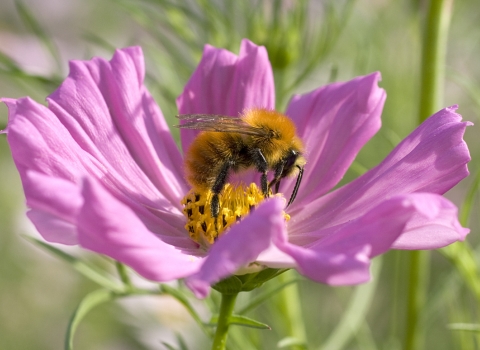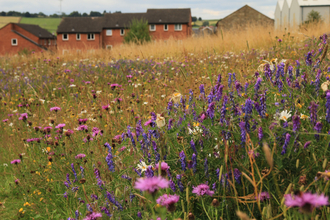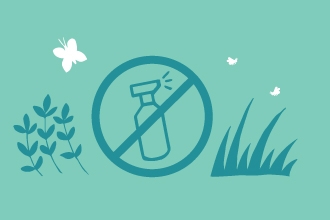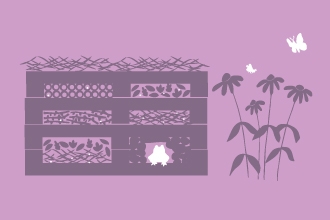Our insects are in trouble
In the UK, our insect populations have suffered drastic declines, which are set to have far-reaching consequences for both wildlife and people.
41% of insect species face extinction. Habitat loss and pesticide use are the two major reasons why insects are dying out eight times faster than larger mammals. However, it’s not too late and with your help, we can create a county full of insect champions willing to help insects recover.
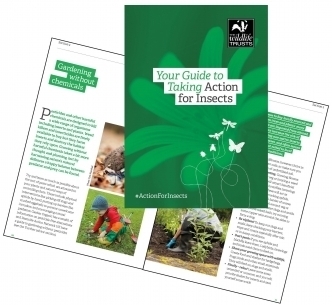
How can you help?
Take action for Insects today and download your free guide, including handy tips of how you can help insects recover where you live. There are 24 million gardens in the UK covering an area bigger than all our nature reserves combined so each little patch adds up!
How will your free Action for Insects guide help you to make a difference?
Packed full of easy to follow advice and tips. Our Action for Insects guide will help you to:
- Create a wildlife and insect-friendly garden
- Plan your garden and choose the right plants
- Stop using harmful chemicals inside your home and in your garden
- Make lifestyle changes that will benefit insects
Insect Declines and Why They Matter
We need everyone to understand the scale of the problem and feel empowered to take action and share their concerns with politicians and policymakers.
The latest report by Professor Dave Goulson summaries some of the best available evidence of insect declines and proposes a comprehensive series of actions that can be taken at all levels of society to recover their diversity and abundance.
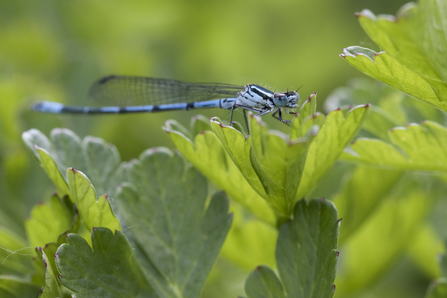
Azure Damselfly - Wildnet / Chris Lawrence
Reversing the Decline of Insects
Insect populations can recover swiftly, with a little help and space.
The Wildlife Trust's new report ‘Reversing the Decline of Insects’ shows how people, in every part of society, wherever they live, can take action to bring back insects. Everyone, everywhere, is being asked to become an insect champion. The report cites examples of farmers, communities, councils and charities that are boosting insect populations and proving that it can be done.
What can be done
Insect populations can recover, and we know what needs to be done to save them.
By working together we can change the future of insects. Starting right now, you can make small changes in your home, outdoor space and community that will help these fascinating creatures. Follow the advice in our Action for Insects guide and create an insect-friendly garden that is teaming with wildlife. Help tackle this crisis today.
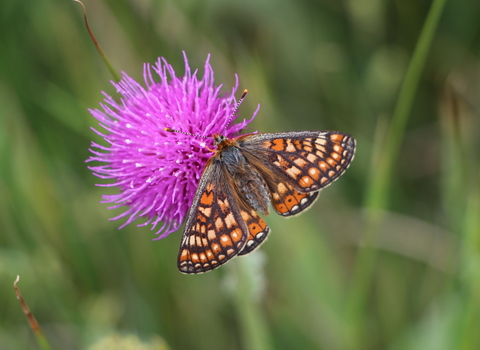
Why we should care
Without insects many birds, bats, reptiles, amphibians, small mammals and fish would die out as they would have nothing to eat.
87% of all plant species require animal pollination, most of it delivered by insects.
3 out of 4 of all the crops that we grow require pollination by insects.
Our goal
To reverse the decline of insects and allow them to thrive once more, The Wildlife Trusts want to see at least 30% of land and seas properly connected, better protected and suitably managed for nature. To achieve this, it requires us all to become insect champions, taking action at home and work, in our communities and schools.
It's also essential that there is a halt to the unnecessary use of pesticides where people live, work and farm, with support for all sectors to make the transition towards becoming pesticide-free.
The new Environment Act calls for the creation of Nature Recovery Networks to be enshrined in law so that nature has more wild spaces that are bigger and better connected. By making 'bug hubs' in your garden to attract insects, your wild patch will become part of the bigger picture - a connected natural world where all wildlife can thrive. Watch our Wilder Future short film with Sir David Attenborough explaining the importance of Nature Recovery Networks
How are we taking Action for Insects?
Essex Wildlife Trust runs two campaigns every year to help insects thrive and learn more about these important little creatures. Bugs Matter is our citizen science survey where we ask the public to document their insect sightings. The Big Wild Seed Sow grows every year to get more people involved with planting wildflowers that will support insects this summer. Check out these campaigns below and find out how you can get involved:
What changes can you make at home?
We have so many tips and tricks to get your gardens and living spaces teeming with wildlife! Whether it is creating a hotel for bees to temporarily reside in, or planting the perfect wildflowers to turn your garden into an insect-friendly haven, there are steps for everyone to take.

